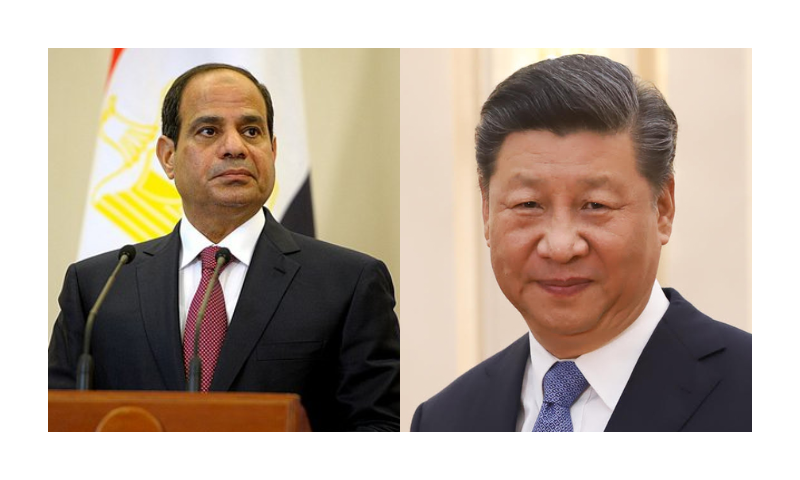Khalill Al-Anani
Arab Center, Jan. 27, 2023
“China has emerged as Egypt’s fourth largest creditor, with outstanding debts amounting to almost $8 billion, representing approximately 5 percent of Egypt’s total external debt of $155.7 billion.”
On December 8, 2022, Egyptian President Abdel Fattah el-Sisi met with his Chinese counterpart, President Xi Jinping, on the sidelines of the inaugural China-Arab Summit in Saudi Arabia. During their meeting, both leaders pledged to further bolster bilateral relations and cooperation within the framework of China’s Belt and Road Initiative (BRI). The relationship between Egypt and China has experienced significant growth in recent years, characterized by the rapid development of economic, trade, military, and cultural ties. Egypt occupies a strategic position within the BRI, which has the potential to push bilateral relations to new heights.
However, the partnership between Egypt and China also entails several implications for Egypt’s relations with the United States, which has been a major ally of the country for decades. While Egypt seeks to benefit from competition between China and the US, failing to maintain a balance in its relations with these two global powers could create long-term challenges. In this regard, it is important for Egypt to carefully consider the opportunities and risks that stem from its partnership with China and to adopt a balanced approach in its relations with both China and the United States.
Historical Background
Egypt and China have a long history of diplomatic relations, dating back to the 1950s. Egypt was the first Arab and African nation to establish diplomatic relations with the People’s Republic of China in 1956. Shortly thereafter, China provided Egypt with $4.5 million in aid during the Suez Crisis after the United Kingdom, France, and Israel attacked it following former President Gamal Abdel Nasser’s decision to nationalize the Suez Canal. During the 1960s, the two countries had good relations through their membership in the Non-Alignment Movement. They also signed a number of agreements on trade, cultural cooperation, and scientific and technological development. It is also notable that during China’s cultural revolution (1966–1976), Cairo was not among the Arab capitals from which China withdrew its ambassadors—an indicator of the special nature of the relationship between the two countries. … [To read the full article, click here]


